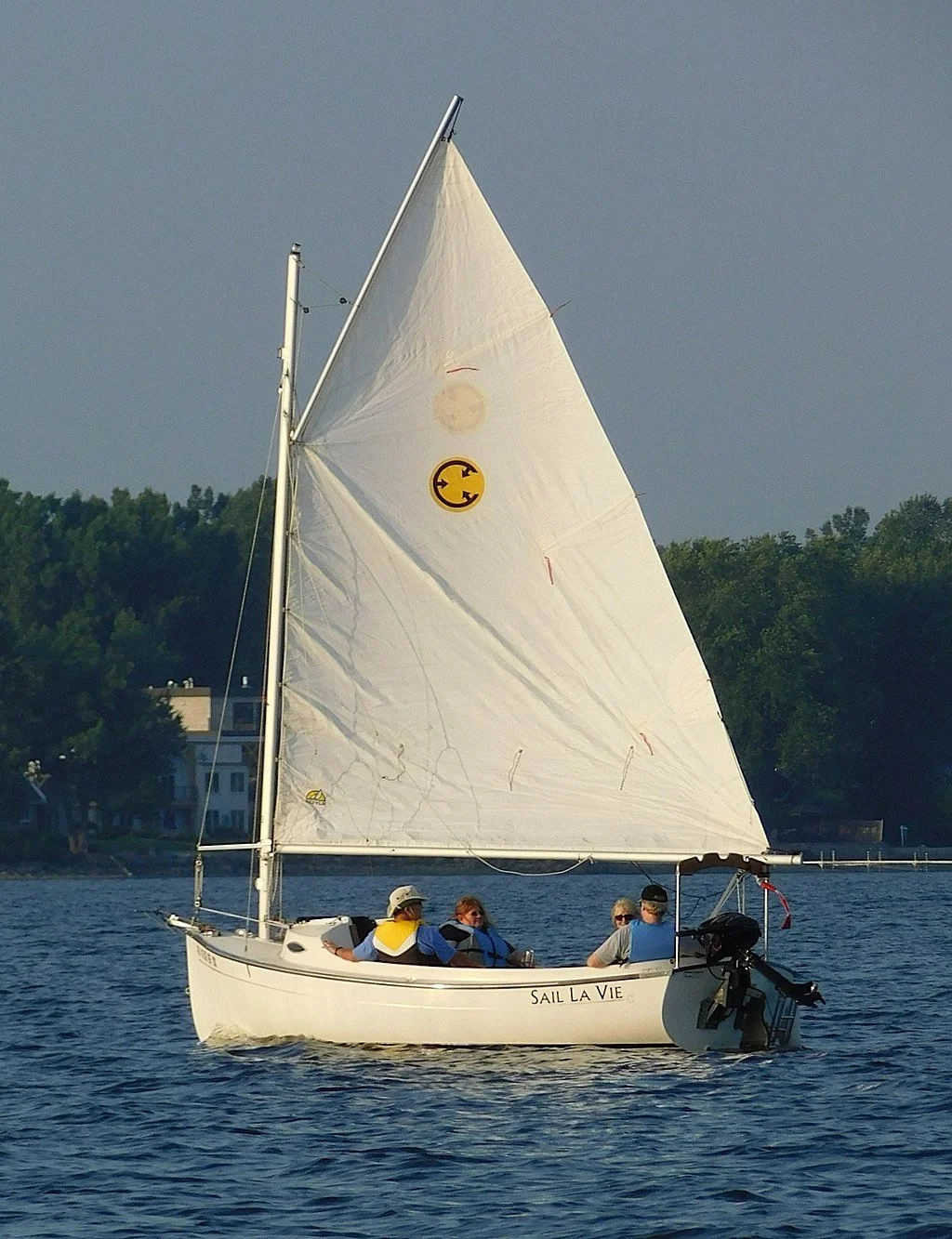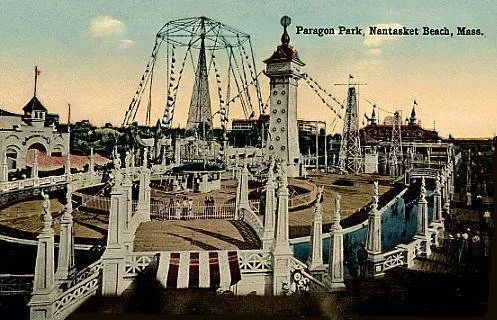Thoughts on summer as it ebbs (?)
“Summer Dreaming” (encaustic painting), by Nancy Whitcomb
(The trick is to get across the Cape Cod Canal bridges.)
Adapted from Robert Whitcomb’s “Digital Diary,’’ in GoLocal24.com
Like many GoLocal readers, I’ve spent much of my life near beaches. To me, they’ve mostly become places to simply walk on, especially in the off-season, to clear one’s head and maybe spot some interesting wildlife, dead or alive.
Where I lived during much of my youth, in Cohasset, on Massachusetts Bay, there’s a mix of sandy gray beaches and very uncomfortable stony strands (recalling Maine) and summertime water that, at least back then, was sometimes much too cold to comfortably swim in, especially on the hottest days, when the southwest wind blew the warm surface water seaward. I came to think that these beaches were mostly good for clambakes, fireworks and letting our dogs run on them. (No enforced leash laws in our town then.) All too often, bunker oil dumped from ships going into Boston Harbor (see below) would coat the beaches, which were also popular teen drinking places at night.
In West Falmouth, on Buzzards Bay, where our paternal grandparents lived, it was quite different, with the usual sou’wester pushing the 77-degree surface water (already fairly warm because of eddies from the Gulf Stream and the shallowness of the bay) toward the soft beach, which included a private club with a simple gray-shingled building that had to be rebuilt after major hurricanes and a tennis court that had to be frequently swept of the sand that blew in from the sand dunes that bordered it.
It had/has a swimming dock that was a centerpiece of kids’ activities there. (There were also some board games in the clubhouse for rainy days and some mildewed books, heavy on potboilers.) Do they worry about sharks swimming near the beach now? We never did.
I never much enjoyed sitting or lying on beaches, with the sand getting into your hair, eyes, swimming suit, sandwiches and potato salad. And no matter how much you rinsed your feet, the grains would stick in your sneakers and end up on the floor in the car and back home. And then there were the flying rats known as seagulls, which would swoop down and steal your lunch and maybe leave a deposit on your head. And sometimes, layers of biting-insect-luring seaweed would cover the lower beach.
Still, the sound of the waves was soporific and being able to look at a far horizon, with its many sailboats, helped put troubles into perspective. And there’s no doubt that being in the sun felt good (for a while), though at the risk of burns and skin cancer (which I’ve had plenty of). Few people thought about that more than 50 years ago. I remember my parents saying “You sure look healthy!’’ when looking at my red face.
The best part of that beach to me became the porch, where I’d read for hours sitting in a rocking chair and taking swigs of the Orange Crush I bought at the club’s little snack bar. There in the shade and a cooling breeze I’d enjoy the views and sounds of the beach without much of the mess, though on a gusty day sometimes sands would blow in there, too.
Does going to beaches tend to make people more environmentalist? We now occasionally use, for a modest annual fee, a beautiful beach, along a cattle farm and tidal river, in South Dartmouth, Mass. It has no facilities except a couple of Port-a-Johns, which, helpfully, tends to discourage day-long visits.
Most importantly, it’s set up in part as a nature preserve – the threatened Piping Plovers, etc. This role tends to make members talk about conservation a lot as they gaze at the low hills of the Elizabeth Islands across usually hazy Buzzards Bay.
Then there were the French beaches where, when we lived and worked in that nation, we were surprised/titillated by how much Western traditions governing public nudity have changed in some places and how waiters would bring food and drinks to you right onto the beach.
We found the most ominous beaches in Florida, with the poisonous Portuguese Man O’War with their lovely blue balloon sails that you wanted to pop, the certainty that there were indeed sharks off the beach commuting up the Gulf Stream, and the brown, wrinkled and irascible retirees. Worse, though mostly on the Gulf of Mexico side, were the toxic red tides, which polluted the air several blocks inland.
We always had small boats – rowboats, small sailboats, up to 17 feet long, even a canoe. We had an outboard motor or two to stick on sterns when needed, but these could be pesky to get going. The boats were practical possessions since we lived up a hill from a harbor. (The canoe was used on a nearby mill pond.)
Before fiberglass, the boats meant a lot of springtime work sanding and caulking the wooden bottoms before applying anti-fouling copper paint. Then we had to carefully maneuver a trailer to launch the sailboats in June and then reverse the process in late September. As the years rolled by, this got tedious.
The channel from the harbor out to the bay, which at Cohasset was really more the open ocean, was narrow, with ever shifting sandy shoals on one side and mussel beds (where we got our bait) on the other and sometimes was quite laborious to get through by sail.
In mid-summer heat waves you had to voyage out at least a mile, to the vicinity of the famous Minot’s Light, to get the real air-cooling effect. You’d hope that ships hadn’t recently dumped a lot of bunker oil, which could cover miles of water and give off a very noxious smell. Thank God for the EPA!
Then back to the small harbor, which became increasingly crowded with large and small pleasure boats over the years, I suppose because of growing local affluence as this small town became an all-out suburb. No longer were lobster and other commercial fishing boats numerous.
It was soothing to go sailing alone, which, if the breeze were a steady 10 to 20 knots, would put you in a ruminative mood. Sometimes you’d throw out an anchor and fish for mackerel, hoping that you wouldn’t get a dogfish instead.
It was also often fun to have small parties on the boats, except when the wind and social energy flagged and there you were – sometimes trapped for hours – in a small cockpit. Eventually, the claustrophobia might force you to use the outboard to motor in.
I still like to go out on boats once or twice a summer if I have a pretty good idea of when I’ll get back to shore. But with the expense and time involved in owning a boat, I’d just as soon have it someone else’s.
xxx
Paragon Park, in Hull, in 1914
There was a now long-gone amusement park, called Paragon Park, along a rather polluted strand called Nantasket Beach, in Hull, Mass., that we’d be taken to about once a year, often around my birthday. There was a lethal roller-coaster, a fun house with sloppily made monsters and, my favorite, something called “The Rotor.” This giant infernal cylindrical device, into which you’d walk, would spin you around at such velocity that you’d be stuck to the walls. (Sounds like astronaut training.)
Inevitably, a kid would get sick and upchuck the junk food (cotton candy, popcorn and hot dogs, etc., of indeterminate origin). Perhaps for the same reason that I very rarely get seasick, I didn’t suffer this misfortune.
Then there were the games (with prizes “Made in Japan,’’ back when that phrase meant cheap instead of high quality), which usually involved throwing a ball at something as a bored attendant (usually an older teen doing this as a summer job) looked on with a frown or a rictus smile.
Paragon Park was notably garish but, especially when you’re young, “kitsch is everything you really like,’’ in the immortal words of our late musician friend with the wonderful name of Page Farnsworth Grubb, who ended his years in Iowa. Despite what you might think from his name, he was about the least pretentious person you could meet. By the way, if you want pretentious, look at the marketing for “The Preserve,” in Richmond, R.I.


